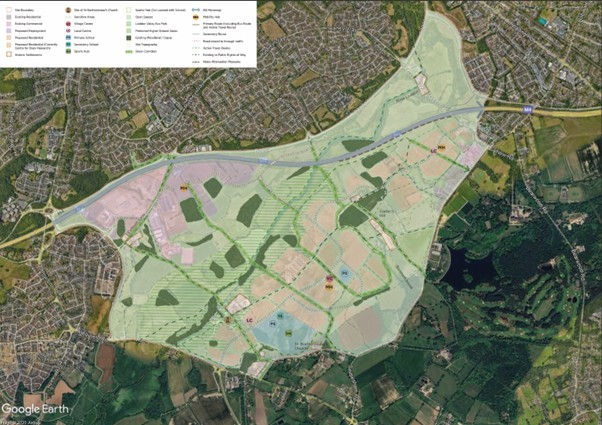Drought, what drought?
- paulstevens24

- Aug 7, 2022
- 3 min read
First, compare the colour of the grass in the foreground (un-watered) with the colour of the grass in the background (very well watered).

The picture above is Reading Football Clubs new training ground off Mole Road in Arborfield. The picture below is Bearwood Lake, which sits next to the training ground and is possibly supplying the water being used to irrigate the sports pitches?

The cutting below is from an Engineers report into the dam that holds back the lake. This dam has now been upgraded by the Environment Agency from a category B to a category A, that is a dam that were it to be breached would pose serious risk to life or property. Extensive works were carried out over the past year but climate change does not just mean droughts and wildfires, it can also lead to terrible flash flooding as witnessed recently in Kentucky. This calls into question the wisdom of building houses down stream of it, which is what the "Loddon Valley Garden Village" proposes.

The land, and the lake, were duly bought by RFC and as you can see, the grass is definitely now much greener on the other side of Mole Road. But speaking as one who considers football to be fairly low down on the list of national priorities (superb performance by the Lionesses notwithstanding, well done ladies!) is this really the best way of solving the Climate Crisis?
Statistics from the Met Office showed that July this year was the driest July for England since 1935, and the driest July on record for East Anglia, south-east and southern England.
It may well be that RFC are pumping their own water onto their own land and they have every right to do so. But is it really wise to prioritise sport over food, for example? They are not the only ones doing this either. Next to the Lake on the other side is the Bearwood Lakes Golf Course that is also very green and well-watered. At the risk of sounding like a kill-joy do we have to actually run out of water before anyone considers a national strategy for it?
Speaking of national strategy, this sounds like a sensible idea: https://www.communityplanningalliance.org/food-security-strategy.html?s=09
There are many reasons why a national food security strategy is a good idea and foremost amongst them are:
“Last year, DEFRA’s food security panel warned of the risks to British farming from climate change, and last week the Intergovernmental Panel on Climate Change issued stark warnings about climate change and the impact on food production. In January the inflation rate for fresh food reached 3.3%, the fastest rate in a decade, with poor harvests in the UK and overseas given as the reason. UK and world farming now faces progressive challenges."
"DEFRA estimates that 6,300 hectares a year are lost to housing development and 12 times that (75,000 hectares per annum) would be needed for biodiversity offsetting. Infrastructure, such as road building and other development, is destroying thousands of hectares more. Yet already there are one million more homes than households, and one million planning permissions unbuilt”.
So the "environmentally friendly" University of Reading want to build on farmland at a time when food security for the world in general and the country in particular is being called into question, and this farmland is right next to a reservoir of some 314 million litres at a time of increasing drought.
Despite hose pipe bans for large areas of the country the water available in this reservoir is being pumped onto football pitches and golf greens.
Wokingham Borough Council are happy to support the building of 4,500 houses beneath a category A dam, despite the risk to life and property posed by the reservoir.
Finally, to cap it all, it seems we don’t even need these houses built?




Comments